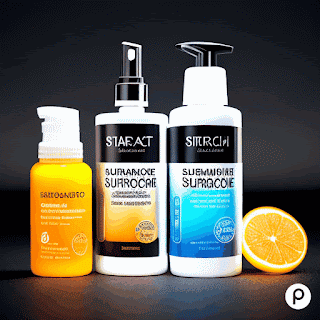The Importance of Proper Sunscreen Use for Skin Protection
Ladies, if you could equip your loved ones with an invisible "bulletproof vest" that protects them from unseen dangers, you'd do it in a heartbeat. Sunscreen provides just that—a layer of protection from the harmful UV rays of the sun, preventing skin damage and reducing the risk of skin cancer.
How Sunscreen Protects Your Skin
Sunscreen works like a thin, invisible shield that absorbs, scatters, and reflects UV rays. Overexposure to these rays significantly increases the risk of skin cancer, which is the most commonly diagnosed cancer globally.
According to the American Academy of Dermatology, someone in the U.S. dies from melanoma—the deadliest form of skin cancer—every hour. Yet, 90% of skin cancers are preventable with proper protection from UV rays. One of the simplest ways to protect yourself is by regularly applying sunscreen.
Why Proper Application Is Key
Despite widespread awareness, many people still experience sunburns because they do not apply sunscreen correctly. For maximum protection, follow the 30-20-2 rule:
- Apply SPF 15 or higher at least 30 minutes before going outside, even on cloudy days.
- Reapply within the first 20 minutes of being outdoors.
- Continue to reapply every two hours, especially for children, who need more frequent applications.
Choosing the Right Sunscreen
Not all sunscreens are created equal. When choosing a sunscreen, make sure it contains effective ingredients such as zinc oxide and avobenzone (Parasol 1789). It should also be a broad-spectrum formula, meaning it protects against both UVA and UVB rays.
Understanding UV Rays
UVB rays cause sunburn and damage the outer layer of your skin. UVA rays penetrate deeper and cause DNA damage, leading to premature aging, wrinkles, and potentially skin cancer.
A broad-spectrum sunscreen protects against both types of rays, reducing the risk of skin damage and long-term health issues.
Understanding SPF
SPF (Sun Protection Factor) indicates how much UV radiation your sunscreen can block. For daily use, SPF 15 is recommended, but for extended time outdoors, SPF 30 is ideal. Remember to follow the 30-20-2 rule to maintain protection throughout the day.
Final Thoughts on Sunscreen Use
Despite the increasing awareness of the dangers of sun exposure, sunscreen use has decreased by nearly 60% in recent years. It's vital to choose the right sunscreen and apply it correctly to protect yourself and your loved ones from preventable skin damage and cancer.


No comments:
Post a Comment